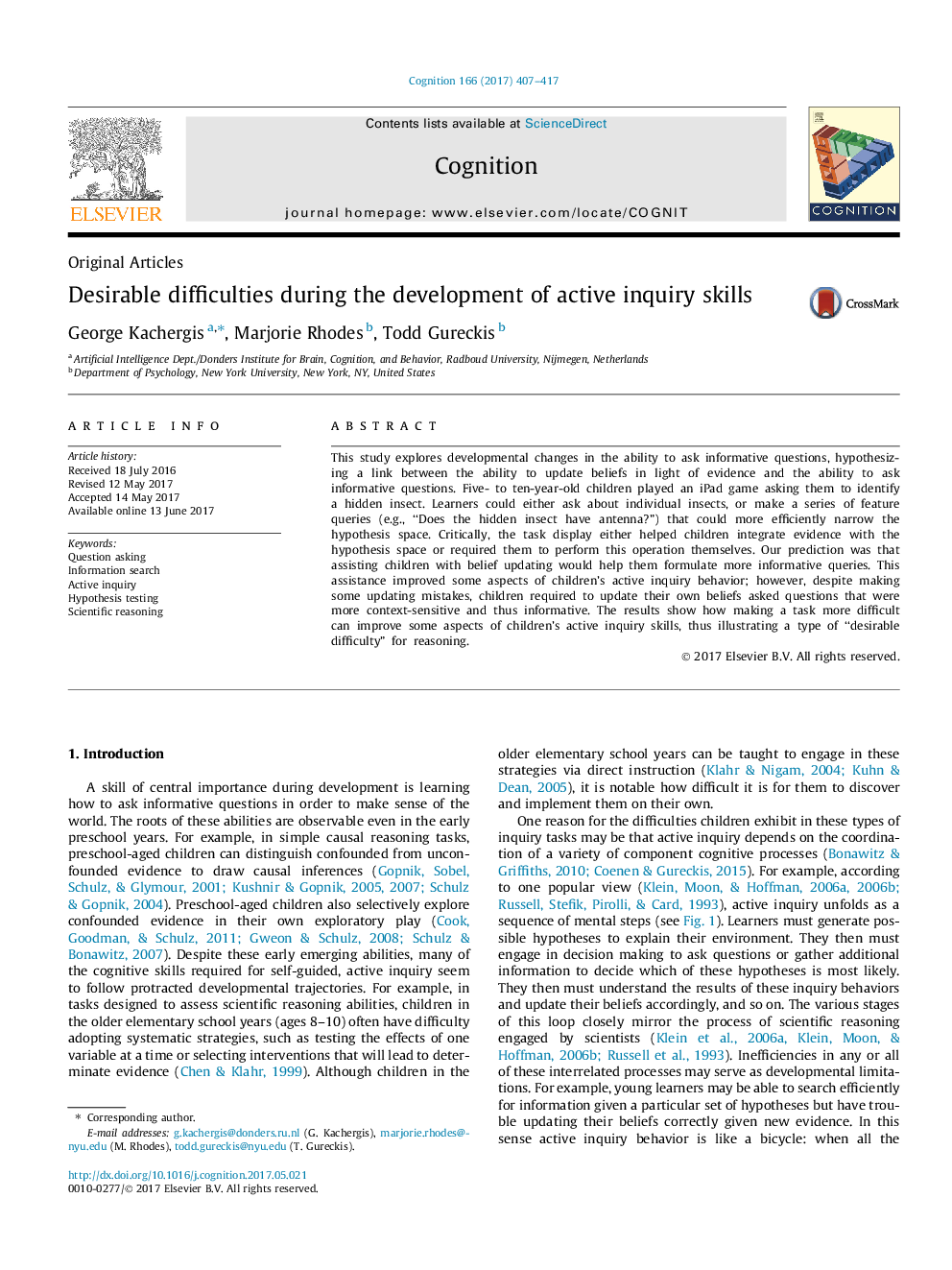| Article ID | Journal | Published Year | Pages | File Type |
|---|---|---|---|---|
| 5041567 | Cognition | 2017 | 11 Pages |
This study explores developmental changes in the ability to ask informative questions, hypothesizing a link between the ability to update beliefs in light of evidence and the ability to ask informative questions. Five- to ten-year-old children played an iPad game asking them to identify a hidden insect. Learners could either ask about individual insects, or make a series of feature queries (e.g., “Does the hidden insect have antenna?”) that could more efficiently narrow the hypothesis space. Critically, the task display either helped children integrate evidence with the hypothesis space or required them to perform this operation themselves. Our prediction was that assisting children with belief updating would help them formulate more informative queries. This assistance improved some aspects of children's active inquiry behavior; however, despite making some updating mistakes, children required to update their own beliefs asked questions that were more context-sensitive and thus informative. The results show how making a task more difficult can improve some aspects of children's active inquiry skills, thus illustrating a type of “desirable difficulty” for reasoning.
